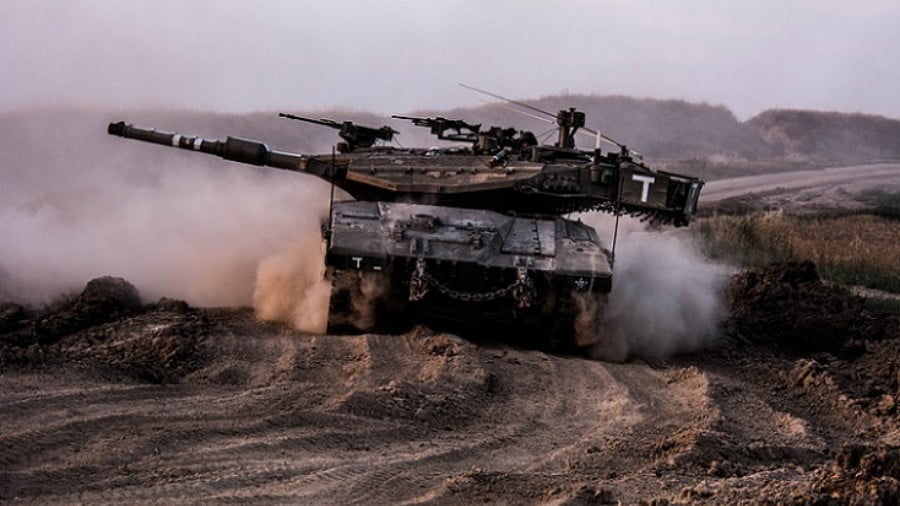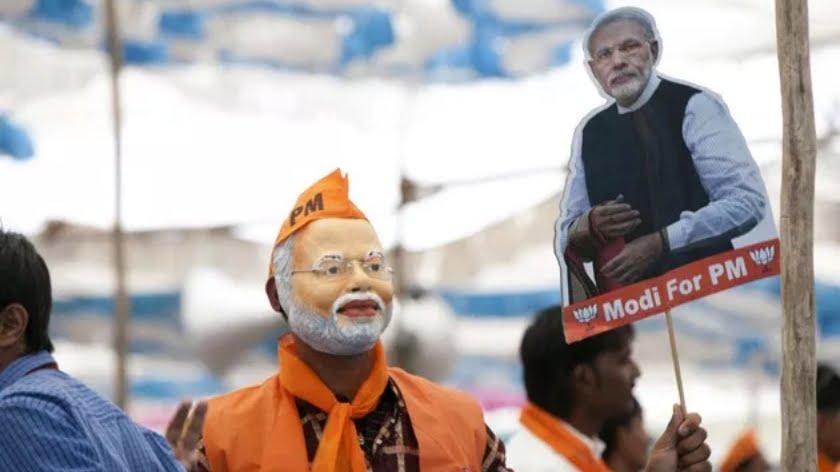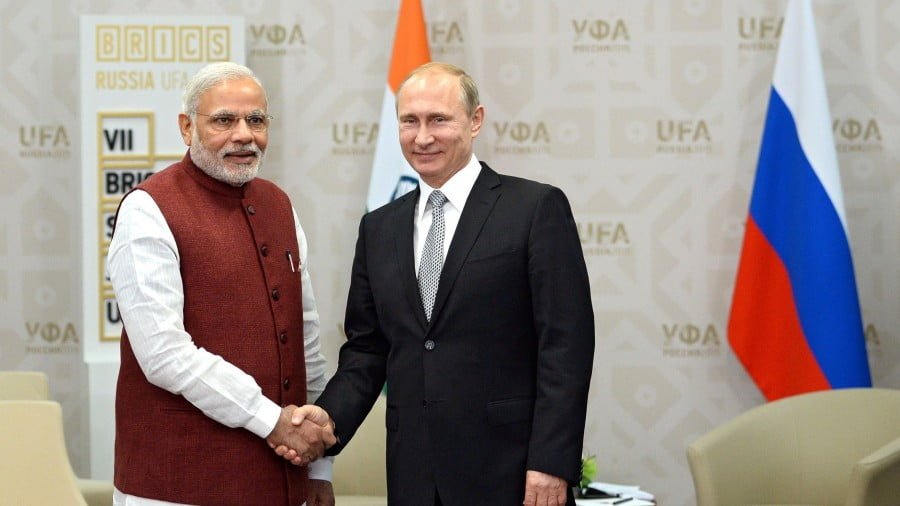Does Anyone Still Seriously Think That Russia and Israel Aren’t Allies
There’s no use for anyone to seriously deny it anymore at this stage – Russia and Israel are allies in Syria, and Tel Aviv’s latest bombing raid proves it. None of Russia’s impressive world-class and state-of-the-art S-400 anti-air defense units were activated to stop it, but this shouldn’t be a surprise for those who have even an elementary understanding of contemporary Russia-Israeli relations. While it’s true that Moscow used to oppose Israel during the days of the Cold War, that all changed ever since the dissolution of the Soviet Union, and the two sides are closer nowadays than at any time in their history. The author wrote about the specifics of this high-level but largely unspoken-about partnership in a series of articles earlier this year that are listed below, which he recommends that the reader at least skim through if they’re totally unfamiliar with this topic:
21 March: “Israel And Russia Are NOT On The Verge Of War. They Are Allies!”
22 March: “What Russia Said To Israel After The Palmyra Raid”
6 June: “Russia’s Mideast Energy Diplomacy: Boom Or Bust?”
27 June: “Syria’s 10-Day Countdown Begins”
10 July: “A Syrian ‘Ceasefire’ For Whom?”
The prevailing idea is that the Russian “deep state” (permanent military, intelligence, and diplomatic bureaucracies) is joined at the hip with Israel because of its ethnic diaspora in the latter which connects them both, and that this in turn set the firm foundation for the multidimensional development of this relationship into the eventual military and strategic spheres. It might be strange to countenance the idea of Israel being Russia’s ally in Syria when Tel Aviv worked together with the US and other countries to create the very same terrorism inside that triggered Moscow’s intervention, but it’s here where it’s worthwhile to quote a relevant passage from the author’s 27 June analysis:
“Moscow is strictly abiding by its anti-terrorist military mandate in Syria and isn’t interested whatsoever in doing anything more than fighting Daesh, but it’s just that there was a prevailing unstated perception surrounding its commitments to the country that made many people believe that it was there to implicitly oppose all of the US and “Israel’s” geostrategic objectives.
While there’s veritably an overlap between Russia’s mission in defeating Daesh and therefore destroying Washington and Tel Aviv’s initial plans in Syria, the fact that Moscow already achieved most of that original mission and its purported “adversaries” have since adapted their strategies in response to instead promote the “federalization” (internal partition) of the country as their “Plan B” shouldn’t be taken to mean that Russia will also expand its responsibilities in order to once again oppose those two actors.”
There is no scenario, whatsoever, that Russia will directly oppose Israel in Syria, and to the contrary, it welcomes its occasional “surgical strikes” there because they play into Moscow’s strategy to indirectly counter Iran. Nobody in Russia will ever openly say it, and all public statements by official representatives claim the complete opposite, but Russia is developing a growing sense of distrust towards Iran and vice-verse, and this has been hitherto unfolding in Syria largely away from the media eye. A keen observer, however, would rightly note that each of Israel’s attacks in the Arab Republic were done under the pretext of attacking some sort of Iranian or Iranian-allied unit or infrastructure, and that Russia never lifted a finger to oppose or condemn it.
The reasons for this are several, but the most important has to do with Russia’s foreign policy progressives wanting to take advantage of their country’s dominant position in Syria in order to establish and strengthen new international partnerships, all with the intent of fulfilling their envisioned 21st-century geostrategic role in becoming the supreme balancing force in Eurasia. This strategy and the “deep state” faction driving it were described more in detail in the author’s Oriental Review analysis titled “Russia’s Foreign Policy Progressives Have Trumped The Traditionalists”, which can be summarized as Russia clinching non-traditional partnerships such as the one with Israel in order to “balance out” the traditional ones that it has with countries like Iran.
This doesn’t mean that Russia is “anti-Iranian” per se, but just that the grand strategy of the two civilization-states contradicts one another on certain fronts such as the one related to Tehran’s hoped-for post-war role in Syria vis-à-vis its hated Israeli rival, which as anyone who has even cursory knowledge about this knows is designed to strengthen Iran’s overall position against Israel through its own forces and those of its allied militia Hezbollah. Russia, however, doesn’t seem to agree with this policy because it believes that it will only “trigger” more Israeli raids into Syria which could eventually contribute to more destabilization in the country and inadvertently endanger the safety of Russia’s forces there, whether through direct action or the indirect facilitation of terrorism.
Although it may pain many in the Alt-Media to read, Russia’s actions in passively allowing Israel to bomb what it claims (whether accurately or not) are Iranian-related infrastructure and troops (whether its own or allied) in Syria indicate that Moscow believes that Tehran “deserved it”, or put more gently, that Iran is “provoking” Israel through its presence in western and southern Syria and that Tel Aviv is therefore “justified” in militarily responding to it with “surgical strikes”. This explanation shouldn’t be taken as the author’s personal endorsement of this policy, but just as an empirical observation acquired from analyzing all of the Israeli bombing raids on Syria over just this year alone. The implicit cooperation, albeit even if passive, that Moscow extends to Tel Aviv in this regard might also have to do with its decision makers wanting to keep Iran on the overall strategic defensive so that the existing support that Russia provides to it acquires a relatively more heightened importance by comparison.
For better or for worse, Russia believes that Iran needs it more than the reverse, and that no matter how begrudgingly it might do so, Tehran will continue to cooperate with Moscow no matter what happens because it has no possibility to replace it in the strategic spheres of nuclear energy cooperation and the Syrian peace process, et al. Moreover, as the troika of Israel, the US, and Saudi Arabia (conceptualized by the author as “Cerberus”) pile on the pressure against their rival and ceaselessly work to encourage their partners to do so as well, the Russian vector of Iranian economic policy will continue to look more attractive as a “pressure valve”, especially in view of the planned North-South Transport Corridor that both sides are working on together with India and Azerbaijan. So long as Russia isn’t directly (key word) hostile to Iran, whether in Syria or elsewhere, and continues to rely on Israel as its “cat’s paw” out of both Moscow and Tel Aviv’s self-interested reasons in doing so, there’s little reason to expect Tehran to “play hardball” in downscaling its existing cooperation with Russia.
Moreover, to touch upon the aforementioned geostrategic contradictions between Russia and Iran, if Iran were to successfully fulfill its grand strategic vision of establishing a “Resistance Arc” between itself, Iran, Iraq, Syria, and Lebanon, then Russia would lose its newfound role as the supreme balancing force in this pivotal space. Rather, Moscow reasons, it’s better for Russia to remain the most powerful actor here in order for it to cut deals with all partners that could potentially play out to its larger benefit, such as in this case possibly participating in the Israeli-Cypriot-Greek pipeline to Europe. This was described in the author’s earlier-mentioned work about “Russia’s Mideast Energy Diplomacy: Boom Or Bust?”, and the idea is that joint Russian-Israeli cooperation in countering Iran’s growing post-war role in Syria might be the condition for Moscow’s involvement in this energy project. It could also be reasonably speculated that Russia expects wealthy Israeli businessmen (likely those of Russian background) to invest in their former homeland as part of this quid-pro-quo arrangement in order to help Moscow deal with the Western sanctions against it, which Tel Aviv crucially declined to partake in.
Again, it can’t be emphasized enough how none of this should come as a surprise for objective observers, but it’s just that the Alt-Media Community has been treated to an incessant barrage of “wishful thinking” over the years in coming to actually believe that Russia is somehow “against” Israel in general, and particularly in Syria. A perfect example of this which took place only recently was the premature triumphalism about the purported failure that the Netanyahu-Putin Summit in Sochi allegedly was, though the wisdom of hindsight has now disproven all of that commentary since it’s very likely that the two leaders discussed what would soon thereafter be the Israeli raid on Homs. This allows one to view the oft-repeated analysis that Putin snubbed Netanyahu, and the even more regularly repeated though constantly debunked theory that Russia set up an S-400 “air bubble” against Israel in Syria, as nothing more than an Alt-Media “echo chamber” amplified by Iranian-friendly voices.
The intention in pointing this out isn’t at all to “defend Israel” or “denigrate Iran”, but just to draw attention to the psychology of groupthink which has taken over Alt-Media and frequently leads to the creation of unrealistically high and almost always false hopes, thereby calling into question the professional accuracy of some of the leading forces who constantly promote such views despite being contradicted on countless occasions by the cold hard truth of reality. It’s tacitly understood that there’s a certain “political correctness” involved in denying Russia’s very close and comprehensive strategic partnership with Israel, especially if one is speaking on Mideast-based media platforms that are traditionally friendly or at the very least respectful towards Moscow, but this will have to change if pundits and aspiring analysts genuinely desire to reflect the objective reality of what’s happening in the world and why…unless, of course, they’re content with putting their reputation on the line in order to advance a certain narrative.
By Andrew Korybko
Source: The Duran







